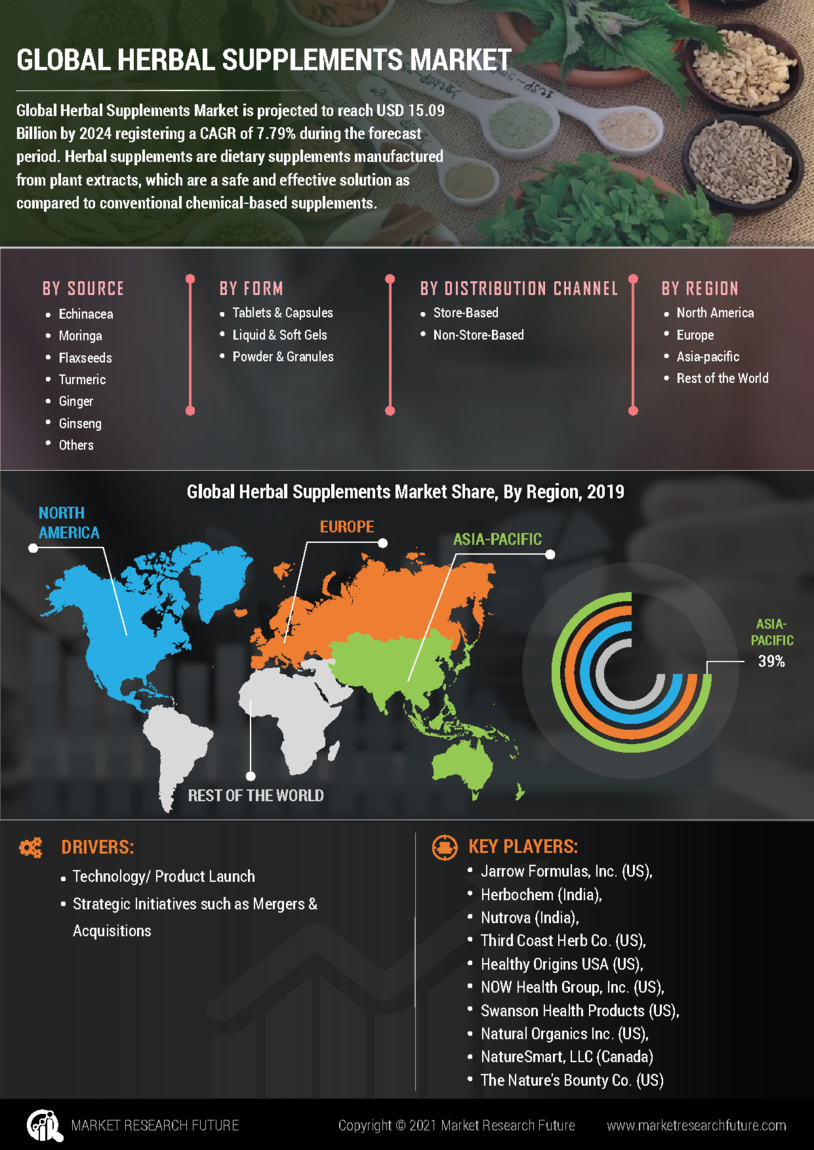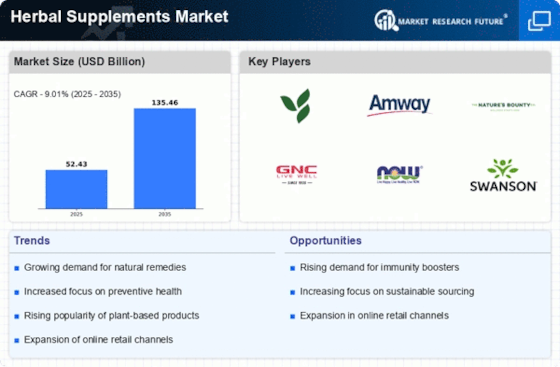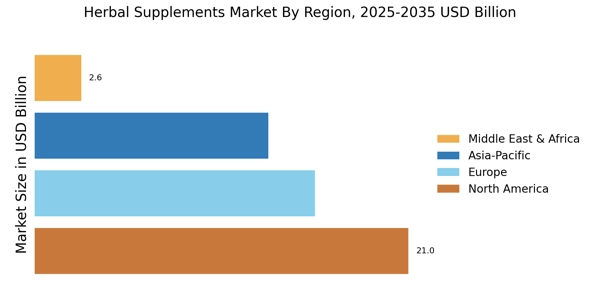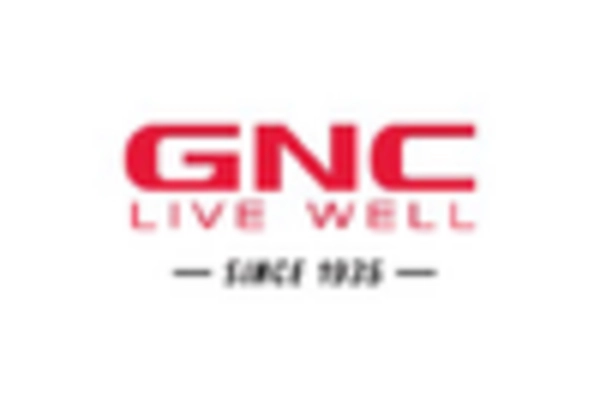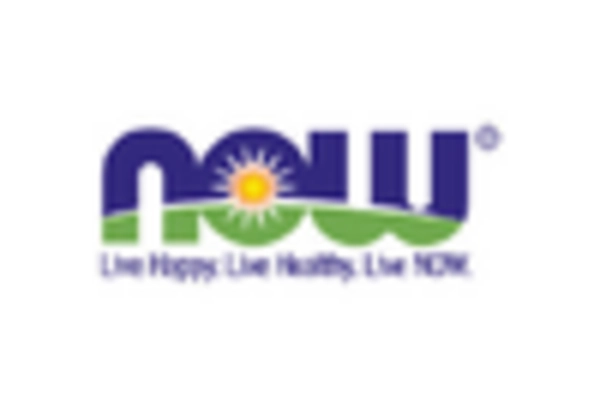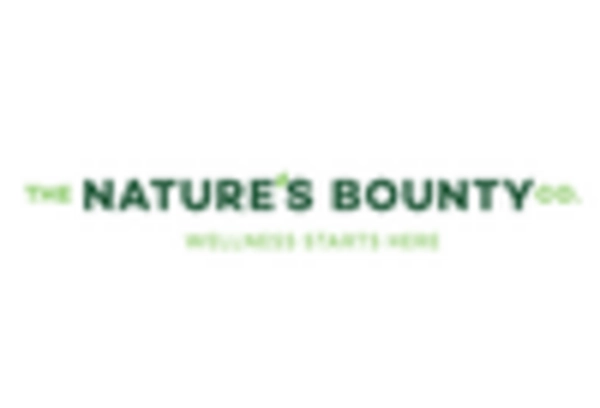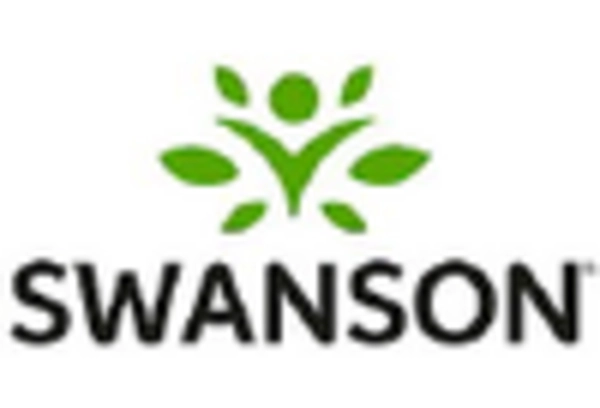Aging Population
The demographic shift towards an aging population is likely to have a profound impact on the Herbal Supplements Market. As individuals age, they often seek natural remedies to manage health issues associated with aging, such as joint pain, cognitive decline, and cardiovascular health. This demographic is increasingly turning to herbal supplements as a means of maintaining health and vitality. Market data suggests that the demand for herbal supplements among older adults is expected to rise significantly, with projections indicating a potential increase of 10% in this segment over the next few years. Consequently, companies are focusing on developing targeted products that address the specific health concerns of this age group, thereby driving growth within the Herbal Supplements Market.
Rise of Preventive Healthcare
The growing emphasis on preventive healthcare is emerging as a crucial driver for the Herbal Supplements Market. Consumers are becoming more proactive about their health, seeking ways to prevent illnesses rather than merely treating them. This shift is reflected in the increasing popularity of herbal supplements, which are often perceived as a natural means to enhance immunity and overall health. Recent statistics indicate that the preventive healthcare market is expected to reach a valuation of over 200 billion dollars by 2026, with herbal supplements playing a significant role in this growth. As a result, manufacturers are investing in research and development to create innovative products that align with this preventive approach, thereby positioning themselves favorably within the Herbal Supplements Market.
Increasing Health Consciousness
The rising awareness regarding health and wellness among consumers appears to be a pivotal driver for the Herbal Supplements Market. Individuals are increasingly seeking natural alternatives to synthetic medications, which has led to a surge in demand for herbal products. According to recent data, the herbal supplements segment is projected to grow at a compound annual growth rate of approximately 8.5% over the next five years. This trend indicates a shift in consumer preferences towards preventive healthcare, where herbal supplements are perceived as beneficial for overall well-being. As a result, manufacturers are expanding their product lines to cater to this growing health-conscious demographic, thereby enhancing their market presence in the Herbal Supplements Market.
Technological Advancements in Production
Technological advancements in production processes are likely to influence the Herbal Supplements Market positively. Innovations in extraction techniques, quality control, and product formulation are enhancing the efficacy and safety of herbal supplements. These advancements not only improve product quality but also enable manufacturers to meet the increasing consumer demand for transparency and traceability in herbal products. Market analysis indicates that companies adopting advanced technologies are likely to capture a larger market share, as consumers are becoming more discerning about the products they choose. Furthermore, the integration of technology in marketing strategies, such as personalized nutrition and online consultations, is expected to drive consumer engagement and loyalty within the Herbal Supplements Market.
Growing Popularity of Alternative Medicine
The increasing acceptance and popularity of alternative medicine are emerging as significant drivers for the Herbal Supplements Market. Consumers are increasingly exploring holistic approaches to health, which often include herbal supplements as part of their wellness routines. This trend is supported by a growing body of research highlighting the benefits of various herbs and natural ingredients. Market data suggests that the alternative medicine sector is projected to grow at a rate of 7% annually, with herbal supplements being a key component of this growth. As more individuals seek out alternative therapies, manufacturers are likely to expand their offerings to include a wider range of herbal products, thereby enhancing their competitive edge in the Herbal Supplements Market.
